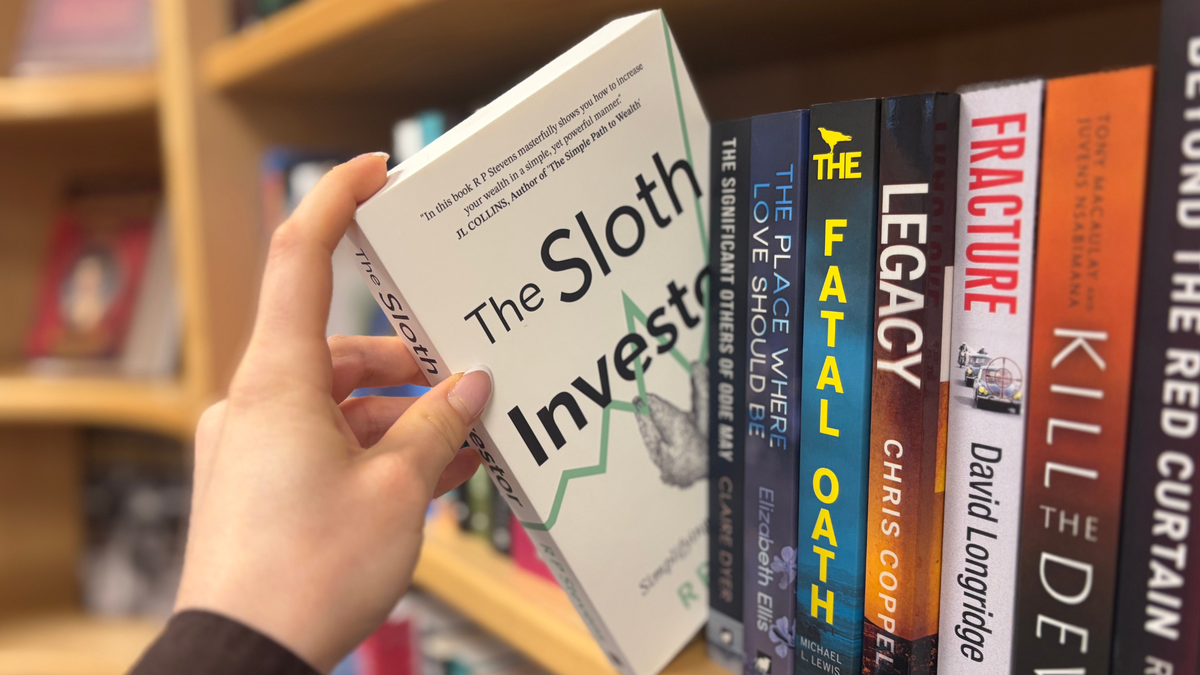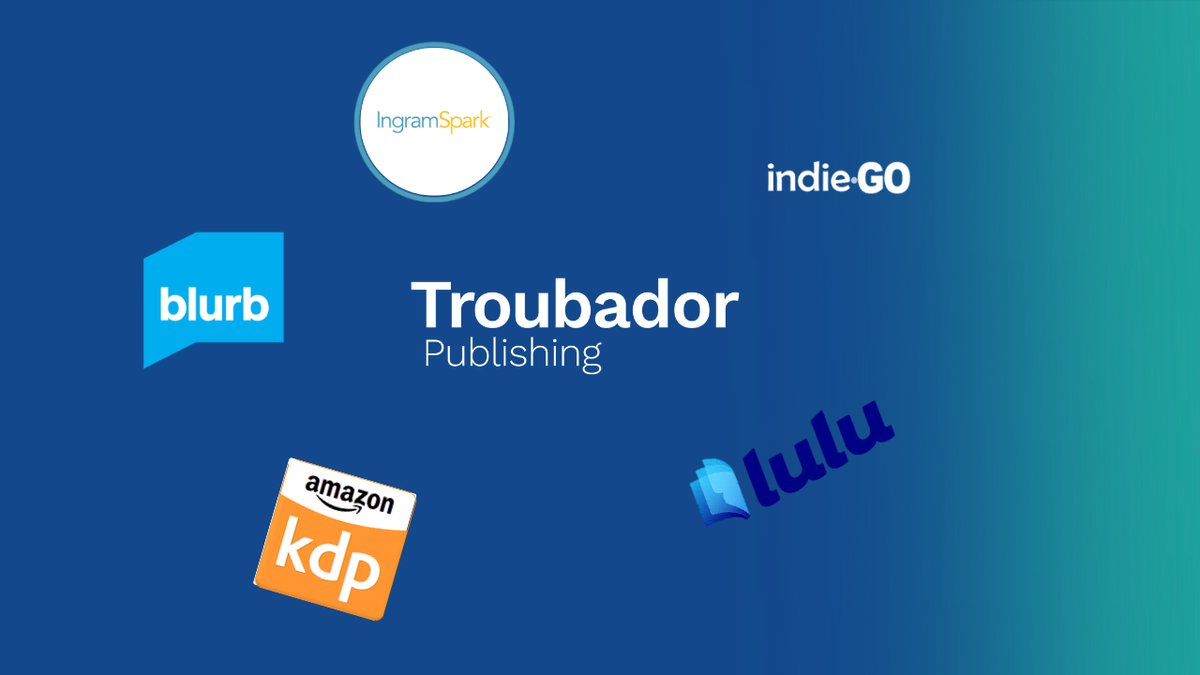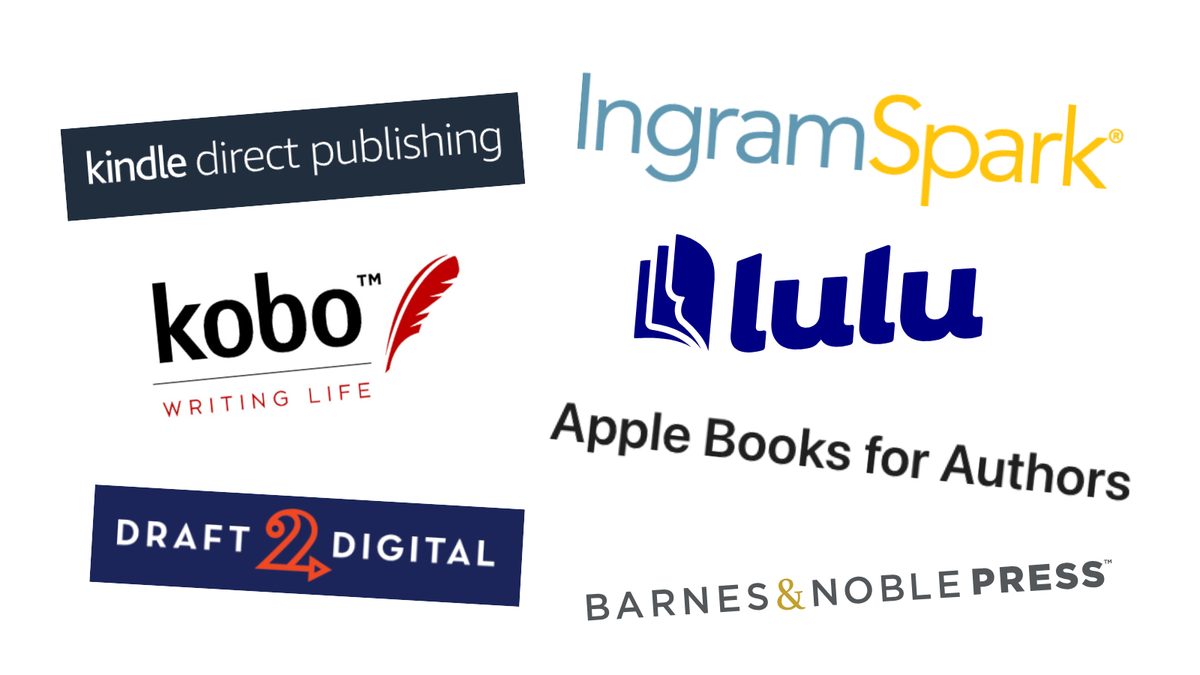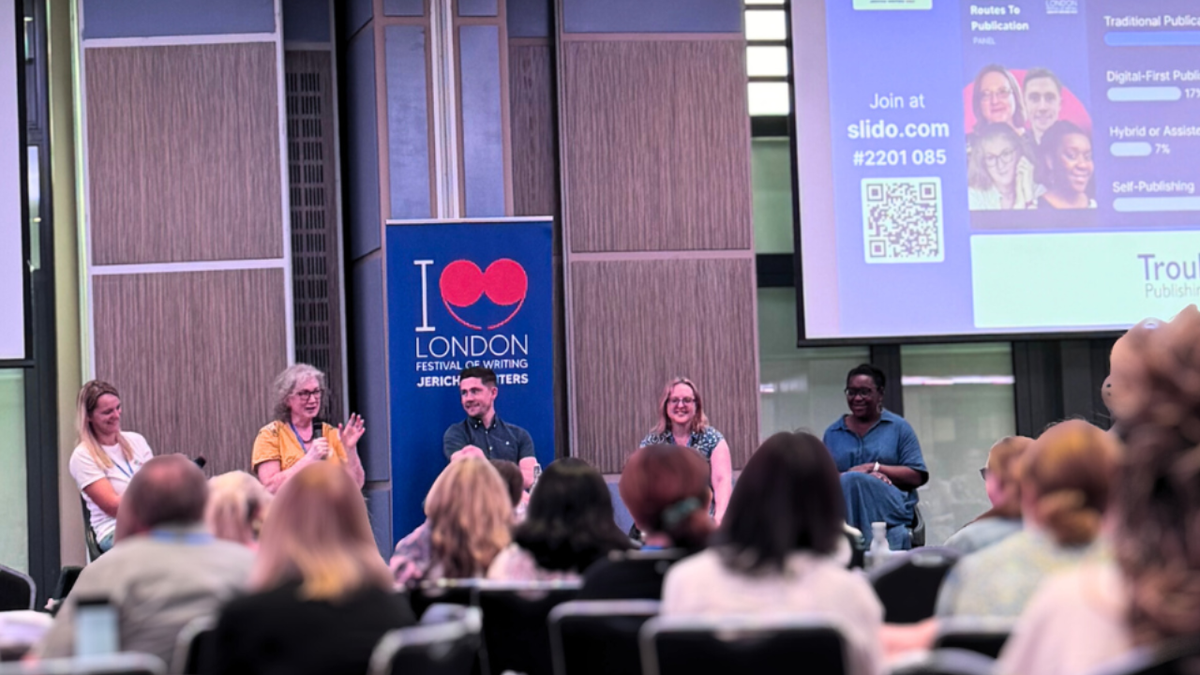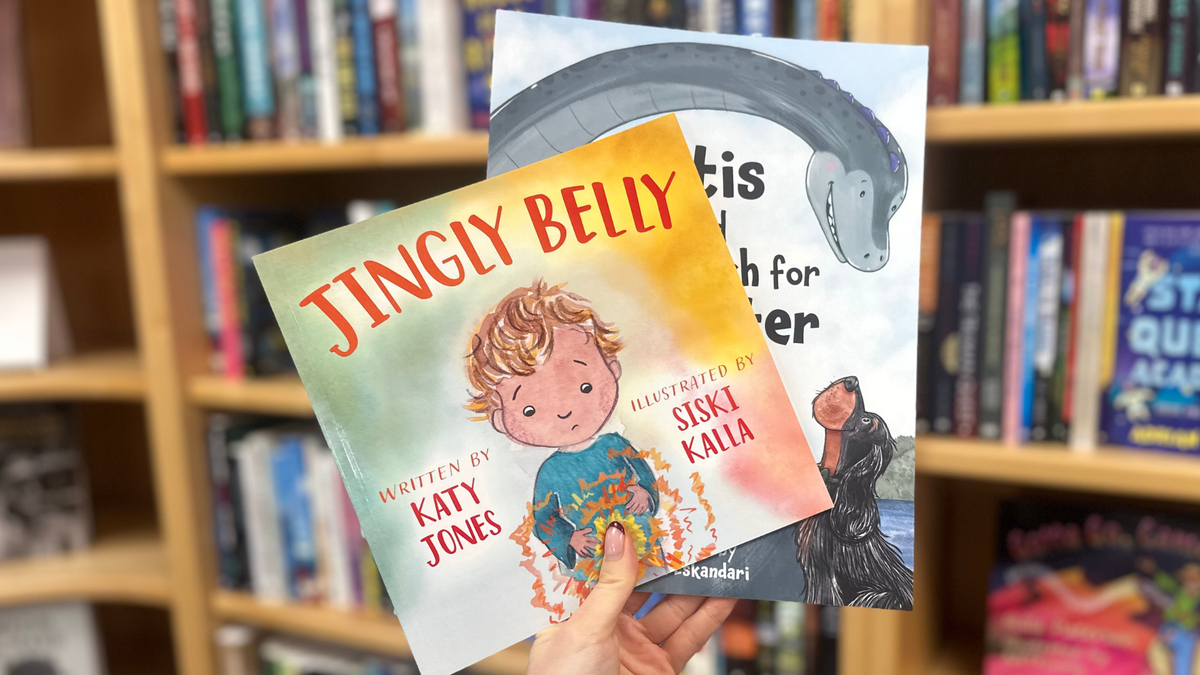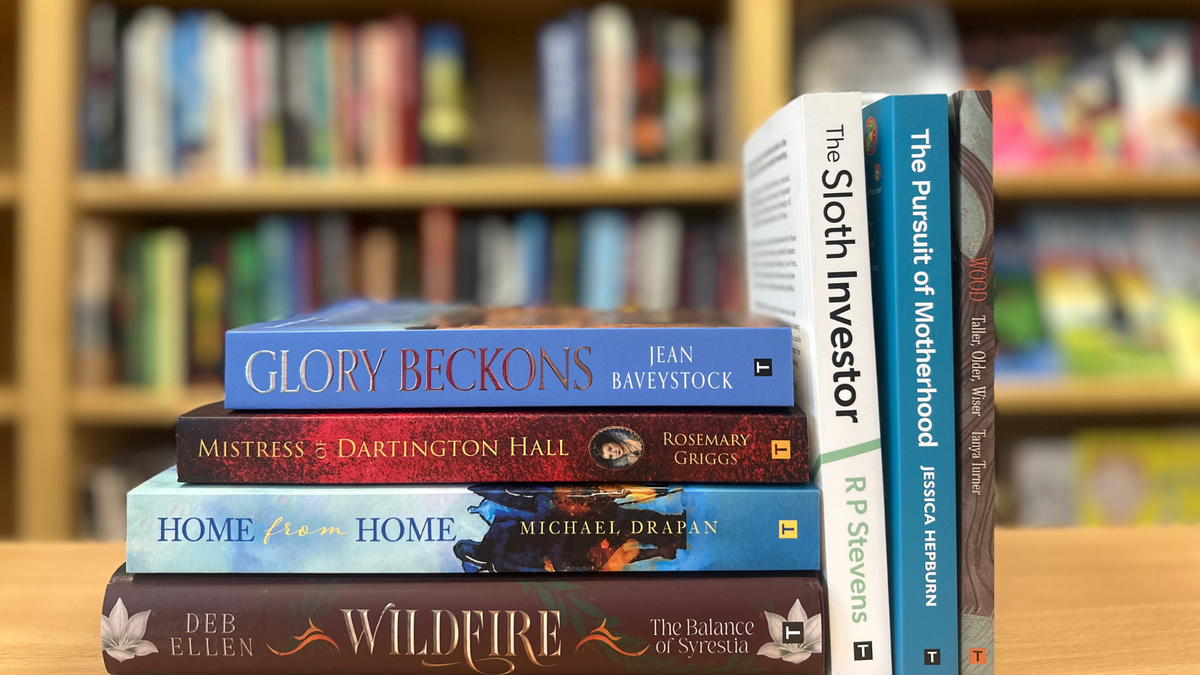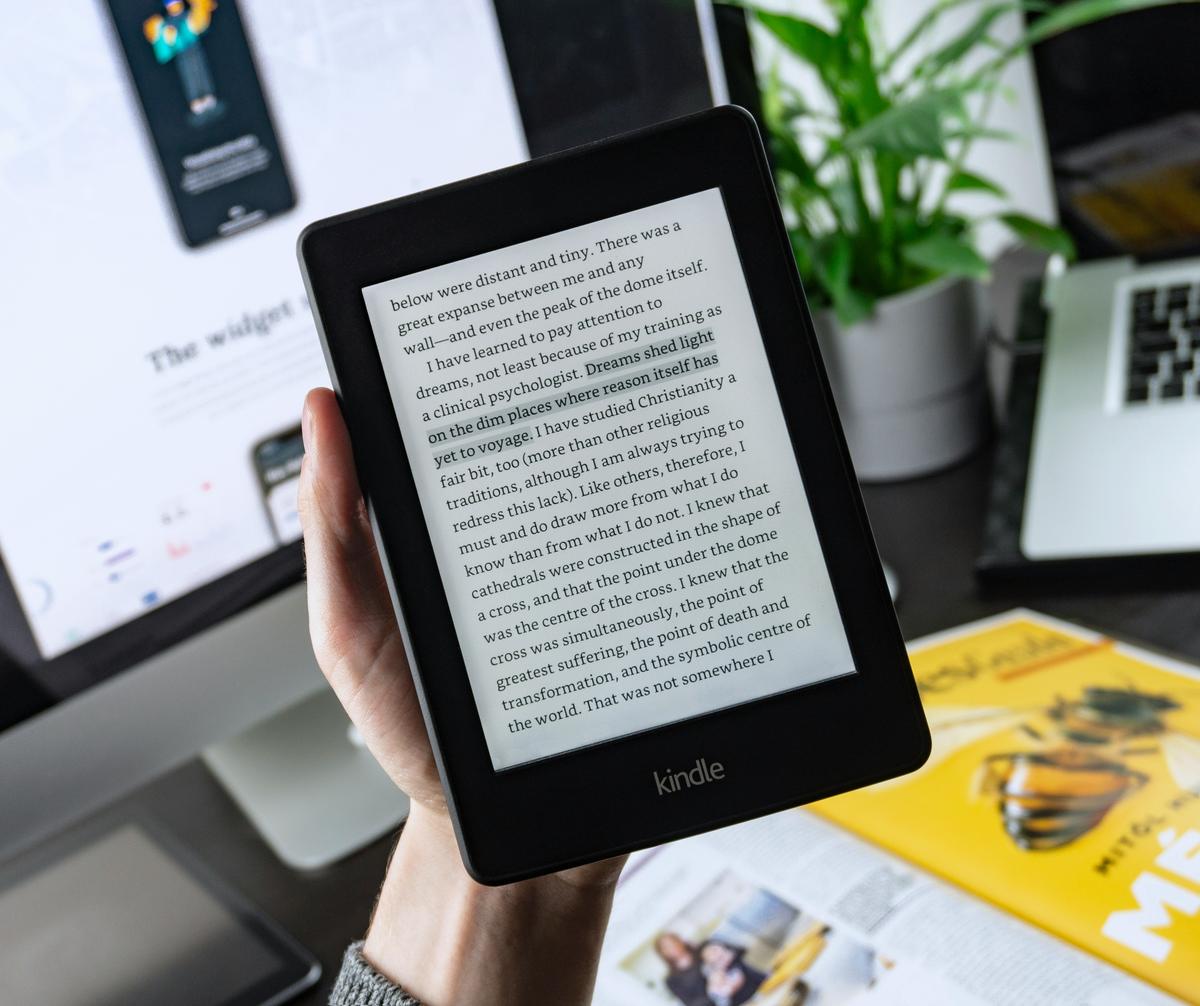
2nd June, 2025
6 min read
5 Self-Publishing Myths That Could Be Holding You Back
Written by:
Chloe May
Over the past couple of decades, self-publishing has transformed from a fringe option to a thriving, mainstream path for writers. Yet despite the success stories and growing acceptance of indie authors, many writers are still held back – not by the process itself, but by misconceptions about what self-publishing actually is.
These myths can keep talented authors stuck in hesitation, second-guessing their choices or assuming they’re not ready. Whether you're plotting that first draft or researching publishing options, let’s break down five of the most common myths about self-publishing.
1. Myth: Self-published books aren’t ‘real’ books
A real book is one that connects with readers. It entertains, informs, inspires or moves people – regardless of who publishes it. Provided an indie author opts for professional editing, design and formatting, self-published books are often indistinguishable from traditionally published ones in terms of quality.
In recent years, the playing field has been levelled further by the huge expansion of online retailers in bookselling. In the digital era, self-published books are every bit as real as traditionally published ones. What’s changed is how books are sold and discovered.
Platforms like Amazon, Apple Books and Kobo have levelled the playing field. When a reader searches for a book in their favorite genre, they often don’t know – or care – whether it's traditionally or self-published. What matters to them is the cover, the description, the reviews and the sample pages. If those elements hook them, they will buy it.
Online selling has redefined what makes a book ‘real’. It’s not about who gave you a contract. It’s about how your book performs in the market – and indie authors have proven time and again that they can outsell traditionally published titles when they understand how to position themselves online. Think, for example, of L.J. Ross, whose crime thrillers consistently top the UK charts – without a traditional publisher.
2. Myth: You have to do everything yourself
Many aspiring indie authors believe that self-publishing means literally doing everything on your own – writing, editing, cover design, formatting, marketing and more. While self-publishing puts you in the driver’s seat, that doesn’t mean you have to (or even should!) become a one-person publishing house.
In fact, one of the biggest mistakes new indie authors make is trying to do too much themselves, especially in areas that require professional expertise, like editing and cover design. Just as traditional publishers assemble teams of specialists, so can you.
Authors can use platforms like Reedsy to source individual freelancers and specialists. However, sourcing individual freelancers can be time-consuming and costs can quickly spiral without effective budgeting. By using a full-service self-publishing company such as Troubador, you can source expert help in all areas of the publishing process under one roof, with full costs detailed from the very beginning.
If you’re looking for a one-off edit, assistance with digital-led publishing or want to upload your book to POD platforms yourself, you could consider Troubador’s sister company, Indie-Go, for individual services using the same publishing experts, without a commitment to the full publishing process.
3. Myth: If you self-publish, you can’t traditionally publish later on
A Troubador, we sometimes come across authors who believe that once you self-publish, you’ve burned the bridge to traditional publishing. In fact, the opposite happens to be true. Many traditional publishers now scout self-published authors, especially those who have already proven they can write, market and sell books.
In today’s publishing landscape, more and more authors are finding success by blending both worlds – either by self-publishing first and then moving to traditional publishing (or vice versa) or by combining the two for different reasons (self-publishing a historical fiction novel, for example, but being traditionally published for a historical non-fiction).
It is worth noting that if you publish a book that doesn’t perform well, it may be harder to pitch that exact title to publishers later and some publishers will also only want to see unpublished works, but a proven track record opens up the possibilities for future books. It’s also crucial that you still own all the relevant rights to your book, or can easily get them back, if you want to pitch a self-published book to a traditional publisher.
If you’re writing with the goal of eventually getting a traditional deal, self-publishing can be a stepping stone, not a detour. It allows you to build a portfolio of work, prove your commercial potential, establish a readership and learn more about the business of publishing first-hand.
4. Myth: You need a huge social media following to sell books
In today’s world, many new authors believe they need to be influencers first and writers second. The pressure to build an online following can feel overwhelming and paralysing, leading authors to delay publication for fear they won’t have the online audience they feel necessary. However, while a social media following can help, it isn’t a requirement for self-publishing success.
Social media has a weak organic reach and being ‘popular’ doesn’t necessarily mean an author’s many thousands of followers are primed to purchase. An email newsletter with a small list of loyal subscribers is likely to far outsell several thousand random followers. And there are ways to promote a book online without depending on a huge personal profile; authors can utilise paid advertising to get their book in front of online shoppers, regardless of how many people follow them personally.
Many of our most successful self-published authors don’t solely rely on an online presence. Instead, they give as much emphasis to word of mouth as well as in-person events to capitalise on their success. Historical fiction writer Rosemary Griggs runs public speaking events throughout the year where she can promote and sell her books to readers who have a proven interest in the subject matter. Libraries and book clubs can be a great way for authors to promote themselves locally if they have little interest in doing so online.
Authors often have the best success with the marketing activities they enjoy doing and are going to take the time to do well. If marketing online exhausts you or doesn’t align with your strategy, don’t force it.
5. Myth: Sales are the only way to define success
Some writers assume that if their self-published book doesn’t become a bestseller or earn a full-time income, it’s a failure. The commercial publishing world often pushes a narrative that equates success solely with sales charts, rankings and revenue. Self-publishing advice online often emphasises the importance of publishing regularly to build momentum – but what if you’re a first-time author whose novel has taken 20 years to get to a publishable state?
Selling books is, of course, important if an author is looking to generate an income from publishing, but for many self-published authors, success looks different. It might mean holding a finished book in their hands, sharing a personal story that helps others, or building a small but loyal community of readers.
At Troubador, we speak to authors every day coming to self-publishing with all sorts of different books and goals and, for many of them, they write because they have something to say, not because they want to publish the next mega-series of novels or get rich. In that context, it’s hard to boil success down to a number.
All of them have done something that many dream of but never complete: they wrote a book and are now seeking publication. That, in itself, is a huge achievement – and one that deserves recognition, regardless of royalties or rankings.
Conclusion
The world of self-publishing is full of possibilities – but it’s also clouded by myths that can hold authors back before they’ve even begun. From the idea that self-publishing isn’t ‘real’ publishing, to the belief that you must do everything yourself or have a massive social media presence to succeed, these assumptions can create unnecessary fear and doubt and prevent authors from publishing in the first place.
But here’s the truth: self-publishing is a legitimate, flexible and empowering path for authors. You don’t need a six-figure book deal to be taken seriously; you don’t need to be an expert at everything; you don’t need to go viral online. And you certainly don’t need to measure your worth solely by your sales. Whether you publish to connect with readers, generate an income or to leave a long-lasting legacy, self-publishing gives you the tools and the freedom to make it happen.



